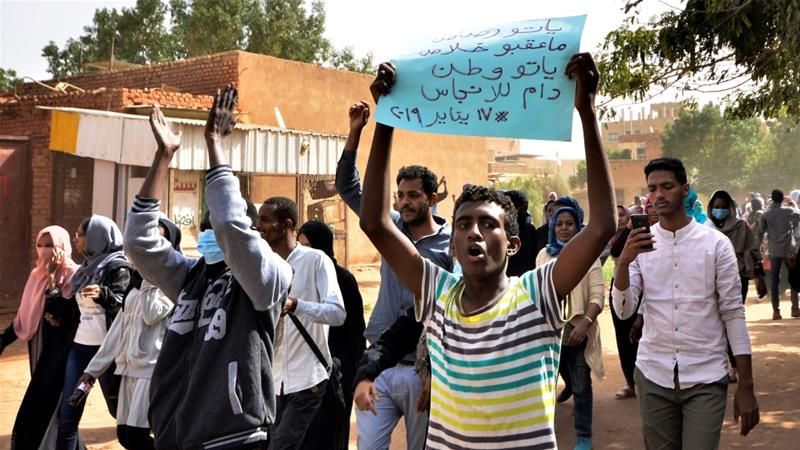
Local Editor
As tensions mounted with Sudan military rulers over the transition to democracy, dozens of angry Sudanese crowded in the Port Sudan airport to protest Saudi Arabia's backing for the country's ruling generals.
A video posted on social media on Tuesday showed a number of people who were blocking a Saudi plane. On the second day of the nationwide strike, the flights of Sudanese airlines Badr, Tarco and Nova reportedly remained suspended.
With Sudan in turmoil following the ouster of longtime President Omar al-Bashir, the continuation of his foreign policy towards Gulf countries by the military has not been well received by the Sudanese people. The chief of the ruling military council General Abdel Fattah al-Burhan and his deputy General Mohamed Hamdan Dagalo last week toured Khartoum's regional allies Egypt, Saudi Arabia and the United Arab Emirates (UAE). Al-Burhan met with Egyptian President Abdel Fattah el-Sissi, a former military chief who ousted the country's first democratically elected leader, Mohamed Morsi in a coup in 2013.
Sudan is part of a UAE and a Saudi-led military coalition fighting the popular Houthi movement in Yemen. That marked a dramatic shift by Khartoum, which aligned itself with the Gulf Arab monarchies at the expense of close ties with their arch-rival Iran. Ousted Sudanese President Omar al-Bashir deployed troops to Yemen in 2015 as part of a major foreign policy shift that saw Khartoum break its decades-old ties with Iran and join the Saudi-led coalition. Sudanese media reports claim that many of the Sudanese troops fighting in Yemen are from the Rapid Support Force (RSF) paramilitary group. Hundreds of Sudanese soldiers and officers are fighting in Yemen and have suffered casualties, raising calls for a withdrawal.
The army ousted al-Bashir in April after months of protests against his autocratic rule, including a sit-in by tens of thousands of protesters outside Khartoum's military headquarters. But the generals, backed by key regional powers, have resisted calls from protesters to hand over power to civilians. Thousands of protesters remain camped outside army headquarters, demanding the generals step down. Before suspending talks last week, protesters and the generals had agreed on several key issues, including the three-year transition and the creation of a 300-member parliament, with two-thirds of lawmakers coming from the protesters' umbrella group. But negotiations stalled as protest leaders insisted a civilian must head the new sovereign council, with civilians making up the majority of its members, proposals rejected by the military.
Source: News Agencies, Edited by Website Team